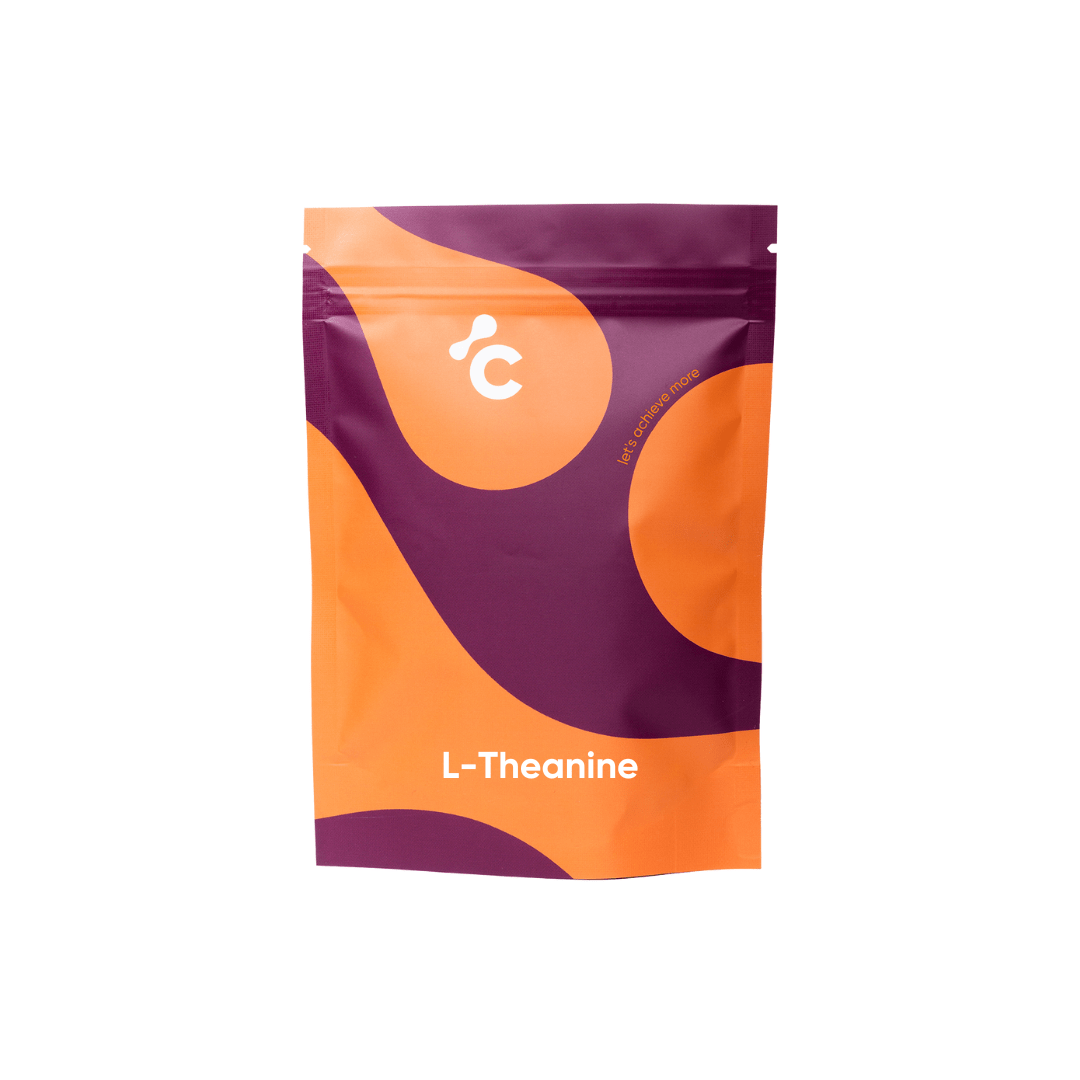L-Theanine vs Magnesium Glycinate: What’s Better for Sleep According to Users

This article explores the effectiveness of L-Theanine and Magnesium Glycinate in enhancing sleep quality, drawing on user experiences from Reddit’s dedicated section, Drugs.com reviews, and Menopausematters forum discussions. It aims to provide a comprehensive overview of how these supplements are perceived and used by individuals seeking better sleep, offering insights into their potential benefits and overall satisfaction from a broad spectrum of users. Through analysis of firsthand accounts, the piece presents a grounded perspective on the subject, contributing valuable information for those interested in natural sleep aids.
Table Of Contents
Article Methodology
To ensure the reliability of the information presented in this article, we followed a thorough research methodology:
- User Feedback Focus: We focused on gathering real-world data by reading user feedback on dedicated platforms.
- Platform Selection: Our research included user discussions from platforms such as Reddit, the review sections of Drugs.com, and the Menopause Matters forum where individuals openly share their experiences with various supplements.
- Scientific Accuracy Disclaimer: It’s important to note that the information provided by users may not always align with scientific evidence. We encourage readers to view this article as a source of shared experiences rather than scientifically proven facts.
- Source Transparency: We openly provide sources for the user comments and discussions referenced in this article to ensure transparency and credibility.
What is L-Theanine?
L-Theanine is an amino acid found primarily in tea leaves, especially in green and black tea, and also available as a dietary supplement. It is well-regarded for its potential to promote relaxation and improve focus without causing drowsiness. L-Theanine is believed to influence brain function by increasing levels of certain neurotransmitters, such as gamma-aminobutyric acid (GABA), serotonin, and dopamine, which can help reduce stress and enhance mood.
What is Magnesium Glycinate?
Magnesium Glycinate is a form of magnesium, an essential mineral, bound to glycine, an amino acid. Magnesium plays a crucial role in numerous bodily functions, including muscle and nerve function, blood sugar levels, and blood pressure regulation. Magnesium Glycinate is particularly sought after for its calming effects and its potential to improve sleep quality by aiding in the relaxation of the body and mind.
Key Benefits of Magnesium Glycinate and L-Theanine
Exploring the key benefits of Magnesium Glycinate and L-Theanine reveals how these supplements have become go-to choices for individuals looking to enhance their sleep quality and overall relaxation. Here’s a detailed look at the specific advantages users have reported:
Magnesium Glycinate:
- Users have reported experiencing improved sleep quality and reduced insomnia symptoms after incorporating Magnesium Glycinate into their nightly routine.
- Some users have highlighted its calming effects, stating that it helps them relax and unwind before bedtime.
- Others have noted a decrease in nighttime awakenings and a more restful sleep overall.
L-Theanine:
- Users have described L-Theanine as effective in promoting relaxation and reducing anxiety, which can contribute to better sleep.
- Some individuals have reported feeling more calm and at ease after taking L-Theanine, leading to improved sleep onset and duration.
- Users have also mentioned experiencing a reduction in racing thoughts and stress-related sleep disturbances when using L-Theanine regularly.
Which One is Better for Sleep?
Determining which supplement is better for sleep ultimately depends on individual preferences and responses. Here’s a breakdown to help you make an informed decision:
- L-Theanine: Users often report feeling more calm and focused after taking L-Theanine. Some users find it provides them with a sense of relaxation without causing drowsiness, making it suitable for daytime use. However, others may experience increased energy levels, which could interfere with sleep if taken too close to bedtime.
- Magnesium Glycinate: Many users praise Magnesium Glycinate for its ability to promote relaxation and improve sleep quality. It is commonly used as a nighttime supplement due to its calming effects. Users often experience deeper and more restful sleep after incorporating Magnesium Glycinate into their bedtime routine.
Incorporating Magnesium Glycinate and L Theanine into Daily Routine
Users have reported finding creative and beneficial methods to include Magnesium Glycinate and L-Theanine in their daily habits, aiming to improve their overall well-being.
Incorporating Magnesium Glycinate
Start with Low Doses: Many users, including the original poster, have emphasized the importance of starting with a lower dose of Magnesium Glycinate, typically around 100mg. This cautious approach allows individuals to gauge their tolerance and observe how their bodies respond before gradually increasing the dosage to 200mg or higher if needed.
Daily Routine: Incorporating Magnesium Glycinate into your daily routine can have significant benefits, particularly in managing anxiety and promoting better sleep. A user has reported taking magnesium supplements both in the morning and right before bed. This consistent intake throughout the day helps maintain stable magnesium levels in the body, potentially reducing the likelihood of anxiety flare-ups.
Combined with Other Vitamins: Some users have found success in combining Magnesium Glycinate with other vitamins and supplements to enhance overall well-being. Alongside Magnesium Glycinate, users have reported taking Vitamin D, Omega-3 oils, and Vitamin B complex. This combination not only supports anxiety management but also contributes to better overall health and mental wellness.
It’s important to remember that the effectiveness of Magnesium Glycinate and L-Theanine can vary greatly from person to person, highlighting the individual nature of supplement use. While many have shared positive experiences, it’s crucial to approach any new supplement with caution, considering potential interactions and individual health conditions. Consulting with a healthcare professional before starting any new supplement regimen is always recommended to ensure it aligns with your specific health needs and goals.
Incorporating L-Theanine
Start Slowly: Users have recommended starting with a low dose of L-Theanine, typically around 50mg, and gradually increasing as needed. This allows individuals to assess their tolerance and observe how their bodies respond to the supplement.
Timing Matters: Timing your L-Theanine intake can make a difference in its effectiveness. Many users prefer taking L-Theanine in the morning to promote a calm and focused mindset throughout the day. Others find it beneficial to take it in the evening to unwind and prepare for a restful night’s sleep.
Combining with Other Supplements: Similar to Magnesium Glycinate, users often combine L-Theanine with other supplements to enhance its benefits. Common pairings include Magnesium Glycinate, Vitamin D, and Omega-3 fatty acids, which collectively support overall well-being and mental health.
Potential Side Effects of L-Theanine and Magnesium Glycinate
These potential side effects reported by users serve as important considerations for individuals considering the use of L-Theanine and Magnesium Glycinate for sleep enhancement, highlighting the need for personalized dosing and careful monitoring of individual responses.
L-Theanine:
- Increased Anxiety: One user reported experiencing heightened anxiety, chest pain, and palpitations after taking L-Theanine, urging caution and starting with low doses.
- Insomnia: Another user mentioned experiencing insomnia and heightened energy levels instead of the expected calming effect, highlighting the variability in individual responses.
- Interaction with Caffeine: A user cautioned about the strong reaction between L-Theanine and caffeine, advising awareness of dosage and potential side effects when combining the two.
Magnesium Glycinate:
- Gastrointestinal Discomfort: One user noted experiencing moderate nausea when taking magnesium glycinate on an empty stomach, suggesting the importance of consuming it with food to minimize digestive issues.
- Dizziness and Exhaustion: Another user described feeling dizzy, exhausted, and experiencing shaky hands after taking magnesium glycinate, emphasizing the need for caution, especially when combined with other medications.
- Potential Blood Pressure Reduction: A user speculated that magnesium glycinate might have caused a significant drop in blood pressure, leading to feelings of dizziness and exhaustion, underscoring the importance of monitoring for such effects.
Disclaimer
The experiences and opinions shared in this article are based on individual user feedback and should not be interpreted as medical advice. Always consult with a healthcare professional before starting any new supplement regimen, especially if you have underlying health conditions or are taking medications.
Sources:
- https://www.reddit.com/r/Supplements/comments/145kb1l/magnesium_vs_ltheanine_for_sleep/
- https://www.drugs.com/comments/l-theanine/, https://www.menopausematters.co.uk/forum/index.php?topic=64896.0
- https://www.sciencedirect.com/science/article/pii/S1756464611000351
- https://www.medicalnewstoday.com/articles/324120
- https://www.sciencedirect.com/science/article/pii/S2213453021001324
- https://www.ncbi.nlm.nih.gov/pmc/articles/PMC10448020/
- https://pubmed.ncbi.nlm.nih.gov/33009349/
- https://www.ncbi.nlm.nih.gov/pmc/articles/PMC6356710/
- https://pubmed.ncbi.nlm.nih.gov/22051430/
- https://www.ncbi.nlm.nih.gov/pmc/articles/PMC5452159/
- https://www.ncbi.nlm.nih.gov/pmc/articles/PMC3703169/





